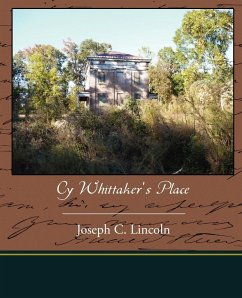Joseph Crosby Lincoln was a 20th century writer of short stories, poems, and novels. Lincoln used the fictional town of Cape Cod as the setting for his stories. He believed that his stories should make the reader feel good about themselves and their neighbors. Lincoln's Cape Cod was a haven occupied by individuals of old Yankee stock, who gave the reader a break from the rapid modernization, urbanization, and industrialization going on around him. Cy Whittaker's Place was published in 1908. The Cy Whittaker place was a run down abandoned house across the street from a formal mansion. What would become of the house? The town's people had some tough decisions to make.
Hinweis: Dieser Artikel kann nur an eine deutsche Lieferadresse ausgeliefert werden.
Hinweis: Dieser Artikel kann nur an eine deutsche Lieferadresse ausgeliefert werden.






![Songs of Cy Warman [microform] Songs of Cy Warman [microform]](https://bilder.buecher.de/produkte/66/66162/66162693m.jpg)

